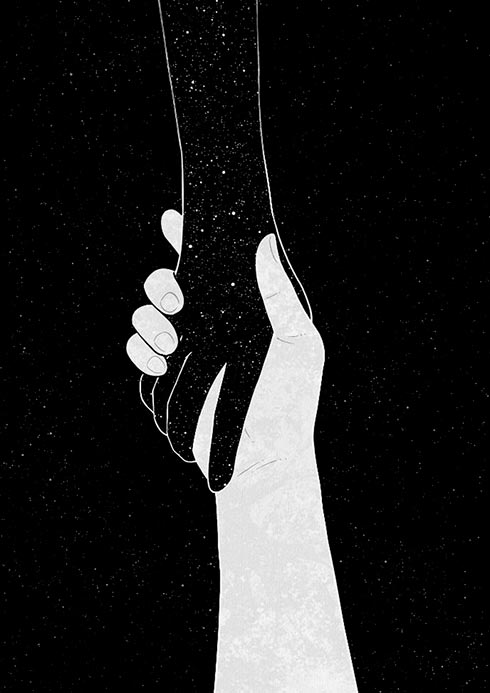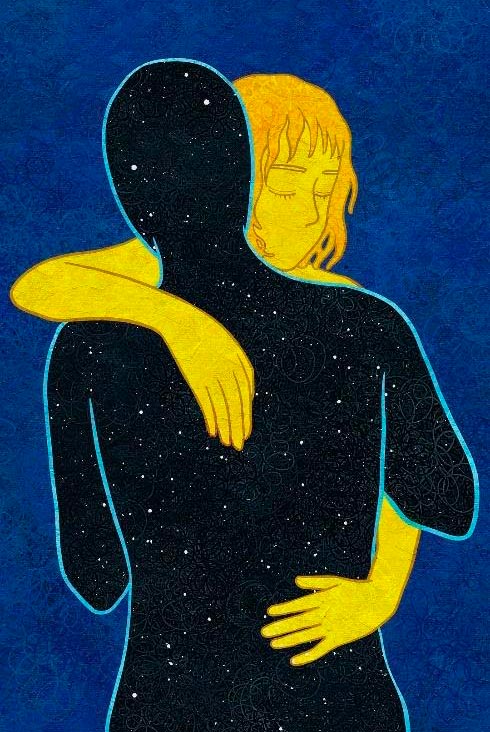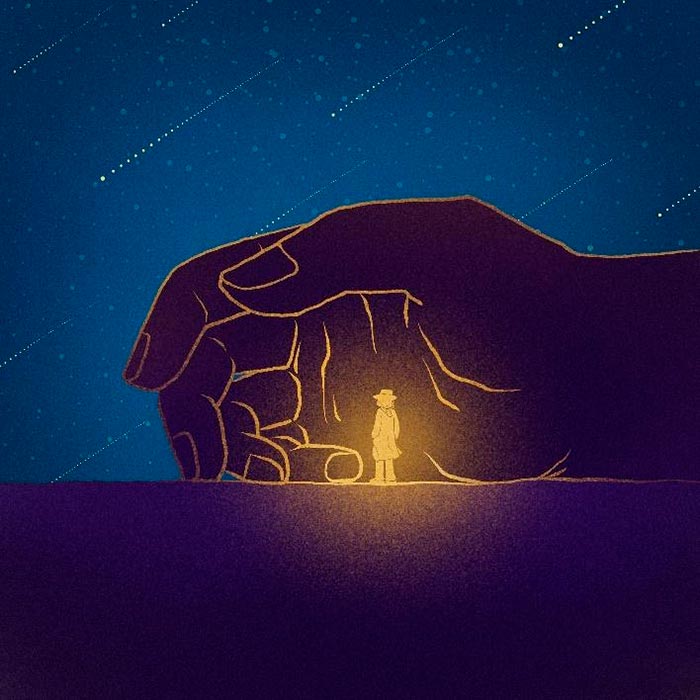Give your opinion
My haven of gratuity

With the arrival of summer and the holidays comes a time of family and friendship reunion (much needed after this difficult year). Juan Pablo Viola, PhD in Philosophy from the University of Navarra, reflects, based on Aristotle and San Juan de la Cruz, on the value and transcendence of affective relationships.

Under regular circumstances my children stay for lunch at high school, but now in pandemic circumstances they are not obliged to do so. For this reason, yesterday at noon we ate less than we usually do. My wife, the oldest (9) and the youngest (3) who didn't go to kindergarten because he had a cold.
Of course, when it's time to sit down, everyone always occupies the same place, that's the way they want it, and if they don't, they get angry. It seems that they feel insecure occupying a different place at the table from the one they always occupy. For children, habit is something very important, because in a way it forges their character.
The anecdote I wanted to tell is that yesterday, as there were fewer of us at lunch, I changed places and sat next to my wife. She always sits at the other end of the table. The thing is that Martin, the youngest, spontaneously grabbed the chair and with his little strength began to drag it, and to say "daddy, daddy"... He doesn't speak fluently yet but he makes himself understood immediately with a few words. And with my wife we watched as he dragged the chair next to me, between me and my wife. He wanted to sit next to his daddy as he always does, and he got it.
The truth is that I felt touched inside. It was a caress to the soul. My three-year-old son, who still can't string together three concepts in a row, is very clear about what it means to love and be loved and expresses it clearly. And I felt contained, appreciated, required, at final, loved. Now, you may ask, who hasn't felt loved at some time? A more than legitimate question. The topic is that, in my opinion, the love that is given in family relationships is a love that is absolutely gratuitous, disinterested, without duplicity, and which is in short supply in today's consumerist world.
In human relationships there are many different relationships and emotional ties Degree. For example, it is very common for boys and girls to form strong emotional bonds with their group friends, and also, most probably, with one of them in particular. The famous "best friend". And that bond is very nice and very healthy, and also very important for the adolescent's personality. It is a subject of love or affection that is undoubtedly very valuable. But it is not always a free love. In fact, I would say that it rarely is. The same happens in the work environment, with colleagues with whom we have many things in common: the profession, the same group of belonging, the same boss, the same hours of work, some hobby or sport, etc. However, an unconditional bond of affection is not achieved in this area either.
Aristotle, who speaks about friendship in his Nicomachean EthicsThe same is done by St. Thomas when he speaks of the different kinds of relationships that are created between friends. St Thomas does the same when he talks about the different types of love. And more contemporarily I have heard Julián Marías talk about topic in some recorded lecture that he has left us. The three aforementioned authors agree with agreement that, in human relationships, and in affective ones in particular, there are many bonds of interest. Rarely is it possible to have a stronger and more lasting affective bond over time, especially if the affective bond with the other is found at framework of the quid pro quo. That is to say, of interest, of "I give you because you give me".

The gratuitous or unconditional love, i.e. the love of which the apostle Paul speaks in his famous "Hymn to Love", only occurs naturally in the family. "Hymn to charity".only occurs naturally in the family, where consanguinity, but not only consanguinity, produces this subject of affection "stronger than death". At least that is how I see and feel it. At least that is how my children and my wife make me feel it with these small gestures, such as the one I recounted at the beginning of this article.
This is how my father and mother and my siblings made me feel, with their faults and virtues, I have to say. Because it is true that even in the family there are problems, disagreements, fights, shouting and reconciliations. But, from my humble point of view, there is no other refuge in which to find a love totally detached from interest. Thomas Aquinas called this love oblativeThe love of the lover who gives everything and in everything he gives, gives himself, and who can even give his life for the other.
That is why the Spanish mystic Saint John of the Cross says that "in the evening of life we will be examined in love". In this subject of love, in total, oblative, unconditional, selfless love. The love that can only be nurtured, lived and learnt in the bosom of the family home.
Some may rightly object that there are families where this love does not exist. And I agree with this statement at agreement . And so, unfortunately, I have to reply that the people, the adult sons or daughters of these families, are the majority of cases of people with significant emotional problems of maturity and even psychological disorders that are difficult to overcome. Why? Because not having that refuge, that solace, that oasis where one can totally and absolutely trust in another makes us sick and unbalanced.
That is why I am very thankful for my family. Because they are my only refuge on earth. Where I feel content, safe, balanced, fearless, and for whom I am capable of giving everything, if I am asked to do so.

If you liked the article, you might be interested in one of our Degrees!










